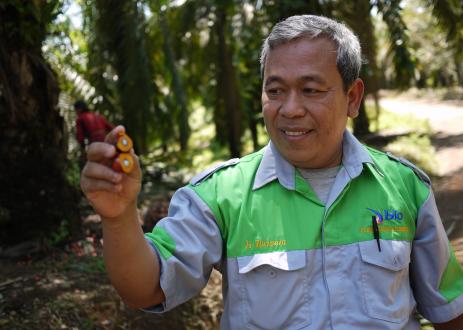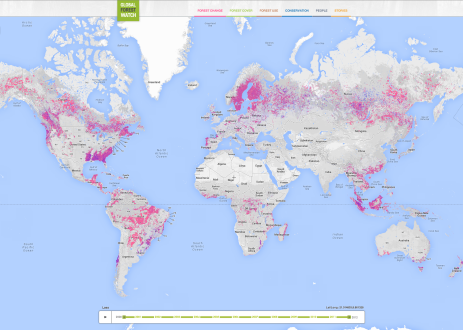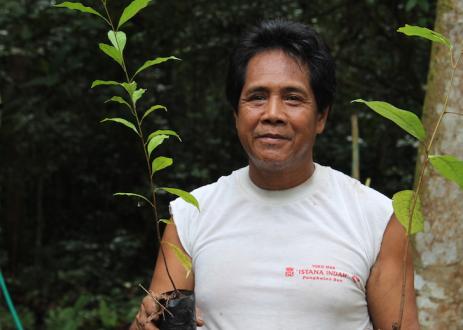Indonesia's Forest Moratorium
Impacts and Next Steps

Synopsis
The authors identify opportunities for progress with the recently extended Indonesian forest moratorium, a policy aiming to protect an area the size of Japan from development.
Key Findings
Most local officials interviewed know little about the moratorium. The effectiveness of the moratorium is hampered by poor understanding of what lands the moratorium protects and what activities are prohibited in these areas. For example, five out of eight interviewed officials from district forest agencies knew the types of land protected from new conversion permits by the moratorium, while only three out of eight knew the areas protected by the official moratorium map within their district boundaries.
The national government has provided limited technical guidance to local government agencies. This includes technical guidance for implementing, monitoring, and enforcing the moratorium. Because administrative and regulatory authority is decentralized to the district level, the moratorium will only be effective if it is clearly understood, implemented, monitored, and enforced at the local level.
Governance reforms have progressed slowly. The Indonesian government has made headway to-ward improving key permitting processes, accelerating spatial planning, and strengthening data coordination, transparency, and access. While these reforms may have progressed in the absence of the moratorium, the extension of the moratorium provided additional momentum to advance key changes.
Executive Summary
An important achievement of the moratorium is the creation of a much-needed window of opportunity to develop critical forest governance reforms. In May 2013, the moratorium was extended for an additional two years. This extension will facilitate continued reductions in deforestation and greenhouse gas emissions and will afford Indonesia an opportunity to continue to strengthen forest governance. However, obstacles to achieve widespread reforms are formidable and progress will require sustained leadership and careful alignment of incentives. Long-term positive impacts will depend on whether Indonesia capitalizes on the opportunities for reform that the moratorium provides.
Priorities include: strengthening the permit review process; accelerating and revising the designation of state forest areas; recognizing community land claims; and evaluating potential green¬house gas emissions of new permits.
Proyek

Forests and Landscapes in Indonesia
Kunjungi ProyekData-driven analysis to support government and civil society actions for effective and equitable land-use in Indonesia.
Bagian dari Forests & Land Use
Global Forest Watch
Luncurkan LamaLuncurkan Lama Kunjungi ProyekA dynamic online forest monitoring and alert system that empowers people everywhere to better manage forests.
Bagian dari Forests & Land Use
Forests and Landscape Restoration/ Restorasi Hutan dan Bentang Lahan (RENTANG)
Kunjungi ProyekInspiring, enabling and implementing restoration on degraded and deforested landscapes, enhancing their economic and environmental productivity.
Bagian dari Forests & Land Use